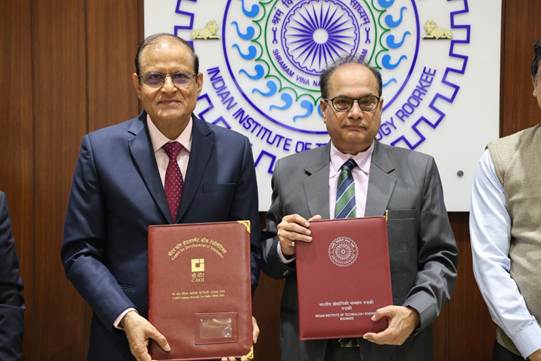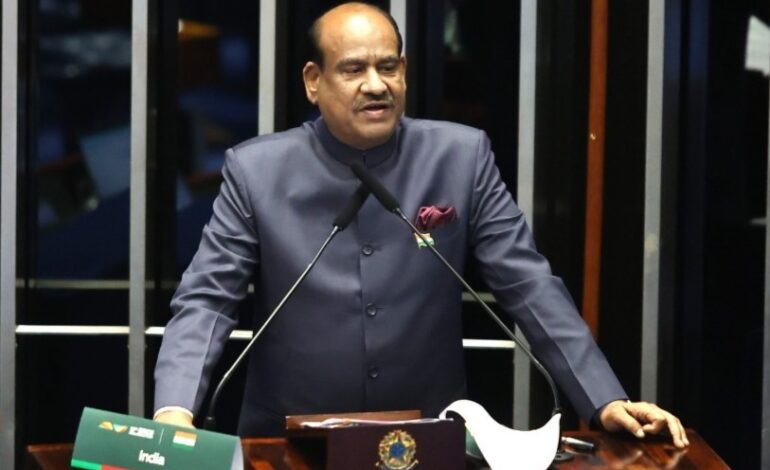Justice Surya Kant Sworn In as 53rd Chief Justice of India by President Droupadi Murmu

At a ceremony held on Monday (November 24, 2025) in the Ganatantra Mandap, Rashtrapati Bhavan, New Delhi, Justice Surya Kant was sworn in as the Chief Justice of the Supreme Court of India by President Droupadi Murmu, in the presence of Vice President CP Radhakrishnan, Prime Minister Narendra Modi, ministers, chief ministers and other dignitaries.
President Droupadi Murmu administers oath; new CJI outlines focus on reducing pendency, strengthening institutional discipline and expanding mediation
New Delhi | November 24: Justice Surya Kant was sworn in as the 53rd Chief Justice of India at a ceremony held at 10 am in the Ganatantra Mandap of Rashtrapati Bhavan on Monday. He made and subscribed to the oath of office before President Droupadi Murmu, marking the culmination of a legal career that began in a village in Haryana and rose to the country’s highest judicial position.
Vice-President CP Radhakrishnan, Prime Minister Narendra Modi and members of the Union Council of Ministers attended the ceremony.
Justice Kant, who has been associated with several landmark constitutional rulings—including the judgment upholding the abrogation of Article 370, the verdict in the Pegasus spyware case and the decision on revising Bihar’s electoral rolls—brings over two decades of judicial experience to his new role.
From Petwar village to the Supreme Court
Born on February 10, 1962, in Petwar village in Hisar district, Justice Kant studied in local schools before completing his law degree from Maharshi Dayanand University, Rohtak, in 1984. He began his practice at the Hisar district court and later shifted to the Punjab and Haryana High Court, specialising in constitutional, service and civil law.
His rise through the profession was rapid. In 2000, at the age of 38, he became the youngest advocate general of Haryana, was designated senior advocate in 2001, and was elevated as a judge of the Punjab and Haryana High Court in 2004. He served as chief justice of the Himachal Pradesh High Court before his elevation to the Supreme Court in May 2019. During his judicial career, he also earned an LLM from Kurukshetra University with first-class first.
Over six years in the apex court, Justice Kant authored more than 300 judgments, many in significant constitutional matters. He was part of the Constitution Bench that upheld the abrogation of Article 370, the bench that ruled on Section 6A of the Citizenship Act, and the bench that granted interim bail to former Delhi chief minister Arvind Kejriwal while upholding the legality of his arrest. Most recently, he contributed to the judgment on the presidential reference regarding timelines for gubernatorial assent to state bills.
As executive chairman of the National Legal Services Authority, he launched the Veer Parivar Sahayata Yojana 2025 to provide free legal support to soldiers, veterans and their families.
Priorities as the new CJI
A day before taking charge, Justice Kant outlined his administrative and judicial priorities in an interview, saying he intends to address the nearly 90,000 pending cases before the Supreme Court. He emphasised the need for “optimum utilisation of judicial force” and reviving the practice of matters being first addressed in the high courts and lower courts.
He said he would identify long-pending cases, ensure that appropriate benches are constituted, and focus on clearing the oldest matters. Strengthening institutional discipline, he noted, is key to the court’s credibility. Courts, he said, must function as cohesive institutions known for consistency, punctuality and preparedness.
Justice Kant underscored his humanistic approach to judging, shaped by his formative years on a family farm and his interest in poetry. He described this as a blend of “a farmer’s patience and a poet’s empathy,” stressing that justice must be delivered with both legal clarity and sensitivity to human circumstances.
He added that even small procedural improvements, technological upgrades and better infrastructure can significantly improve case management. Empathy and communication, he noted, are essential to effective leadership in the judiciary.
Mediation as a game changer
Among his agenda items, Justice Kant called mediation a “central plank” of judicial reform. He said greater adoption of mediation—particularly by government agencies—could reduce the burden on courts and allow disputes to be resolved more efficiently.
As he begins his tenure, Justice Surya Kant is expected to steer the Supreme Court through a period of high pendency while pushing for administrative reforms aimed at strengthening efficiency, transparency and public trust in the judicial system.








